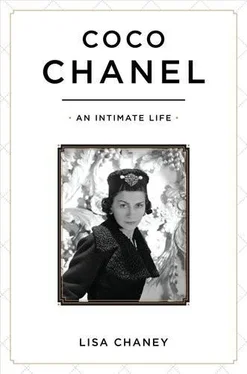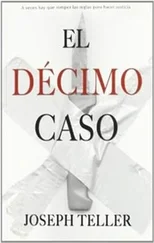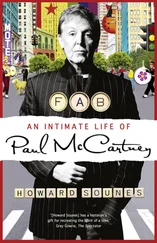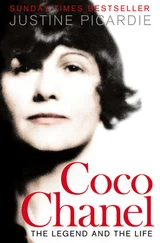Schellenberg decided Gabrielle should travel to Madrid to set up her meeting with Churchill via Sir Samuel Hoare, the British ambassador. As her safety net with the British, however, Gabrielle wanted the Germans to bring along Vera Bate-Lombardi — from internment in Italy — an acquaintance of Winston Churchill’s. At this point, the two women’s stories diverge. Vera afterward claimed that Gabrielle sent a German officer to Italy with a letter asking her to return to Paris and help Gabrielle reopen Chanel. 44Having refused, Vera was subsequently arrested as a British spy. (Vera believed Gabrielle had caused this.) According to Gabrielle, she waded in on Vera’s behalf and got her out of a Roman prison.
Vera next came to Paris, and later said that instead of reopening her salon there, Gabrielle told her that it was in Madrid she wanted help with a salon. Vera went along with this, although, as it turned out, neither she nor Gabrielle trusted each other. When they arrived in Spain, Gabrielle apparently went to see the British ambassador to present him with her plan. He informed her that Churchill was not now visiting Spain; he was unwell and returning to England via Cairo and Tunisia. (It is highly unlikely that Churchill had ever agreed to meet Gabrielle in these times.) Meanwhile, in Gabrielle’s discussion with the ambassador, she omitted telling him that Vera was also in Madrid. This was a mistake because Vera, meanwhile, had arrived at the embassy and was in another room denouncing Gabrielle as a German agent. 45
Vera’s request to be returned to Italy was refused, and she duly wrote to Churchill. Telling him she wasn’t a spy but a loyal British subject, she begged for his assistance. Gabrielle also wrote to Churchill, explaining that she had been “obliged to address someone rather important to get her [Vera] freed and be allowed to bring her down here [Madrid] with me.” She went on to tell Churchill that she realized that this had put Vera in a compromising position; her Italian passport had a German visa on it and Gabrielle understood “quite well that it looks a bit suspect.” She suggested that a nod from Churchill would facilitate Vera’s return to Italy, where she wanted to find her husband. Gabrielle signed herself affectionately, and asked about his health and that of his son, Randolph. 46
Information on Gabrielle’s bungled mission is somewhat muddled. She appears now to have returned to Paris. But Vera was kept in Madrid, from where she sent various missives to Churchill begging him to help her. The British had, however, already been suspicious of Vera Bate-Lombardi. She had remarried in the twenties; Colonel Lombardi was an Italian, and for some time before the war the couple had been suspected of spying by the French Interior Ministry. As one of their associates, from 1929 Gabrielle had also come under investigation. While much of the information in the final dossier on Gabrielle was ludicrously inaccurate, 47the French suspected the Lombardis of being double agents. 48While another investigation was ordered in 1931, in the end, the French didn’t have enough concrete evidence against the Lombardis, and nothing against Gabrielle. 49
The British Foreign Office, Allied Force Headquarters and the prime minister’s office conducted an investigation. After several months, in December 1944, they concluded that while there was no indication that Vera was “sent to Madrid by the German Intelligence Service, it is equally clear that Mme Chanel… exaggerated Mme Lombardi’s… position in order to give the Germans the impression that if she were allowed to go to Madrid she might be useful to them. Mme Lombardi seems to have had some curious notion of trying to arrange peace terms.” While the prime minister’s office concluded that Vera should be allowed to return to Italy, she was, nonetheless, “by no means anti-Fascist,” had not been “completely cleared of all suspicion,” and was “still under a cloud.” 50Whatever the lost details of this murky episode actually were, and whether the megalomaniac scheme to be involved in ending the war was really Vera’s or Gabrielle’s, it had come to naught.
While fashionable Paris persevered in its refusal to face the tide of events, there was no longer any pretense by the authorities of Franco-German cultural exchange. Meanwhile, the theaters were full, and Cocteau and Gabrielle set to work on the restaging of his Antigone . Gabrielle also moved herself back to her apartment in the rue Cambon. Was she taking care to separate herself from any connection to the German command?
On the morning of June 6, 1944, D-day, the Americans, the Canadians, British and the Free French began the phenomenal Normandy landings. Over a stretch of fifty miles of beaches, this was the launch of the Allied invasion of France. More than 150,000 men were landed in what was to be the most complex and largest amphibious invasion ever undertaken. Brigadier Simon Fraser, Lord Lovat, the son of Arthur Capel’s sister-in-law, Laura — in other words, Arthur’s nephew — was among those on the Normandy beaches. In defiance of recent orders not to permit such foolhardy action in battle, Lord Lovat, wearing the kilt his father had donned in the First World War, famously ordered his personal piper, young Bill Millin, to pipe the men ashore. Lovat then led his commando brigade in what became one of the most iconic images of these famed landings. The Germans later said the only reason they hadn’t shot Billy was because they thought he was mad. This piece of bravado would have appealed to Arthur Capel.
While Parisians anticipated the arrival of their liberators, a fierce battle was taking place in Normandy. But in Vichy, as Pétain proclaimed that “the battle which is taking place on our soil does not concern us,” the Allies moved slowly toward Paris, fighting all the way. By June 26, de Gaulle had landed and proclaimed a new government, and by early July, the Americans were on the outskirts of Chartres, fifty-six miles southwest of Paris. With de Gaulle’s master plan, the notoriously divided Resistance agreed that there was no question: Paris must be seen to liberate itself.
Yet while German troops had begun a sporadic retreat, they had also continued arresting and deporting people to the camps, and the swastika still flew over the senate in the Luxembourg Gardens. Within a day or so, the major institutions were in the hands of the liberators, but a week later there were still some Germans in Paris.
As von Dincklage left with his compatriots in retreat, apparently he asked Gabrielle to come with him. He told her they could quietly slip away to neutral Switzerland, but Gabrielle refused. She was defiant, and would face whatever happened. By August 17, the most senior collaborators were being evacuated by the German army: more than twenty thousand French militia and fascists fought their way onto the retreating trains and trucks. At intervals, these were bombed by the Allies and sabotaged by the Free French, who were staging an uprising against the Germans in Paris. The Resistance and de Gaulle were determined that it would be the French who liberated their own capital, and not the advancing Allies. Serge Lifar heard that he was to be evacuated with the Germans, and sought refuge with Gabrielle in the rue Cambon. With the remnants of the Vichy government, Pétain, who claimed he was a prisoner, was taken by the Germans to the Hohenzollern castle of Sig-maringen, near Stuttgart. Paul Morand was already there.
Gabrielle and Lifar saw the last German tank roll away down the rue de Rivoli, heard the last street fighting between the Germans and the Free French, and saw firefighters hoist the first French flags up over the Théâtre de l’Opéra. The supreme allied commander in Europe, General Eisenhower, hadn’t regarded Paris as a primary objective. The German forces were retreating toward the Rhine; the aim was to reach Berlin before the Red Army, and there put an end to the conflict. And while Eisenhower had thought it was premature for any battle for Paris, de Gaulle would now force his hand. In de Gaulle’s determination to be seen to “free” Paris, he threatened the Allies that he would order the French 2nd Armored Division into the capital.
Читать дальше












